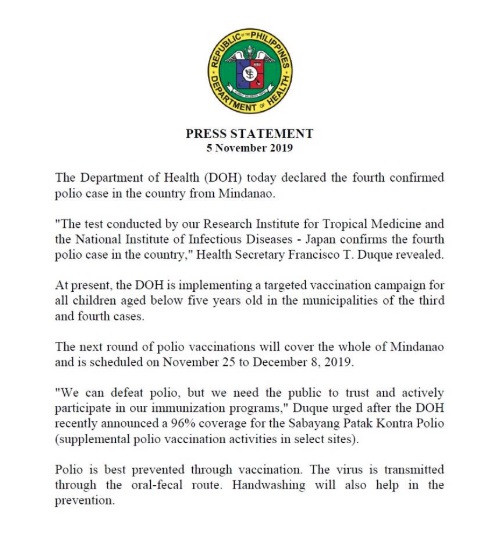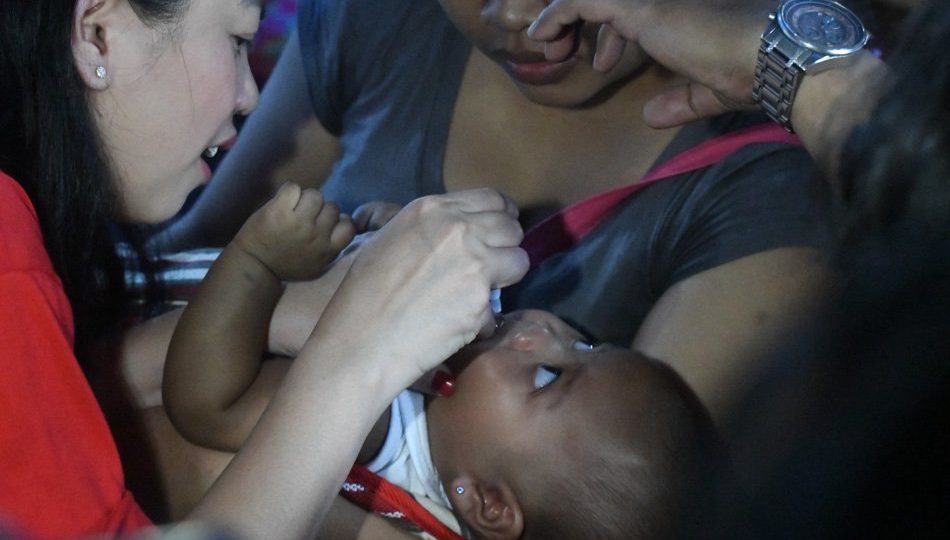The Philippines’ Health Department announced last night that another person has tested positive for polio, making them the fourth confirmed case of the debilitating disease since it resurfaced in the country after an almost 20-year absence.
A statement posted on the Department of Health’s official Facebook account said the patient is from Mindanao, but it did not divulge the person’s gender, age, or town. The patient tested positive in tests conducted by the Research Institute for Tropical Medicine in Muntinlupa and the National Institute of Infectious Diseases in Tokyo, said Health Secretary Francisco Duque III.
Read: 19 years after being declared eradicated, government says polio is back in the Philippines

Duque said that the Philippines “can defeat polio, but we need the public to trust and actively participate in our immunization programs.”
In the same statement, the DOH said that there will be mass vaccinations across Mindanao island from Nov. 25 to Dec. 8.
The department’s announcement comes just a few days after it confirmed that a third case was detected in Datu Piang town in Maguindanao, where a 4-year-old girl tested positive for polio.
It was in September when the first new polio case was detected in Lanao del Sur, almost two decades after the Philippines was declared polio-free by the World Health Organization. According to Duque, the average polio vaccination rate in the country is at 66 to 68 percent, lower than the ideal rate of 95 percent to ensure herd immunity.
Read: Philippines begins mass vaccinations after polio returns
Filipino parents have reportedly become fearful of vaccination due to the controversy surrounding Dengvaxia, an anti-dengue vaccine now banned in the country. It was included in the government’s vaccination program in 2016 and some 800,000 school children were immunized with it.
But in 2017, Public Attorney’s Office chief Persida Acosta claimed that Dengvaxia had caused hundreds of children to die, a claim rejected as baseless by many doctors, including Duque. The scare caused many parents not to immunize their children, which led to a measles outbreak earlier this year and a national dengue epidemic that started in August.
There is no cure for polio. Its symptoms include vomiting, abdominal pain, constipation, fever, and lethargy. A small number of cases lead to paralysis.





Reader Interactions